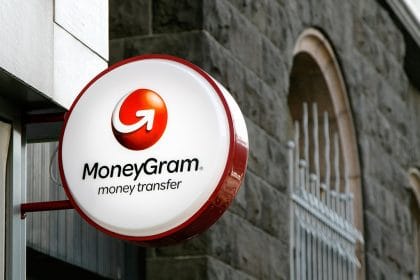MoneyGram has noted that it is not a named party in the SEC vs Ripple lawsuit and that its relationship with the embattled blockchain payment firm remains unchanged barring any new developments.
American money transfer company MoneyGram International Inc (NASDAQ: MGI) has seen a tremendous surge in its shares following the report of a strong digital transaction in December, especially during the holidays. Per an official release, the company’s direct-to-consumer digital business, MoneyGram Online (MGO), delivered 142% year-over-year cross-border transaction growth in the previous month and reported the largest number of transactions ever in a given month.
The coronavirus pandemic waged its war directly into the holidays further propounding the need and demand for fast digital payments as the presence in banks to conduct transactions became more unenticing. MoneyGram thus attributed this growth to the strong demand for its mobile payments app.
“During these uncertain times, when reliability, speed, and affordability, coupled with digital-first offerings have mattered more than ever, customers continue to choose the MoneyGram brand in record numbers,” said Alex Holmes, MoneyGram Chairman and CEO. “Our growth this holiday season is another important milestone in our consumer-centric digital transformation, and the entire company is incredibly excited about the skyrocketing momentum in our direct-to-consumer business.”
A consumer report showed that part of the top reasons for sending money through the MGO platform amounting to about 70% of the funds sent by consumers were to family members that needed support for food during the holidays. This was followed by expenses for housing (55%) and healthcare (52%). The recorded performance of MGI sent its shares up by 18.1% on Tuesday to US$6.29 per share. The shares are on another rally in the after-hours trading where they are up an additional 4.45% to US$6.57.
MGI Shares Further Bolstered by the Firm’s Averted Lawsuit
The outperforming MGI shares have been further bolstered by the averted shareholders’ lawsuit thanks to a Delaware Court of Chancery ruling. As reported by Decrypt, Moneygram was sued by some of its shareholders who alleged that the company’s executives were complicit in failing to help prevent anti-money laundering through the firm’s platform.
The claims that the top executives involved acted in bad faith has been overturned by Vice Chancellor Sam Glasscock III who noted in his Memorandum Opinion that “bad oversight is not bad-faith oversight.” The Vice-Chancellor also noted that because the MGI executives were so bad at their jobs is why they were saved from the lawsuit pointing to their mistakes as “feckless” which connotes a “lack of vigor.”
Per the company’s broader connection to lawsuits, MGI has noted that it is not a named party in the SEC vs Ripple lawsuit and that its relationship with the embattled blockchain payment firm remains unchanged barring any new developments.
“The Company has not currently been notified or been made aware of any negative impact to its commercial agreement with Ripple but will continue to monitor for any potential impact as developments in the lawsuit evolve,” Moneygram revealed in a statement issued earlier.
Benjamin Godfrey is a blockchain enthusiast and journalists who relish writing about the real life applications of blockchain technology and innovations to drive general acceptance and worldwide integration of the emerging technology. His desires to educate people about cryptocurrencies inspires his contributions to renowned blockchain based media and sites. Benjamin Godfrey is a lover of sports and agriculture.




